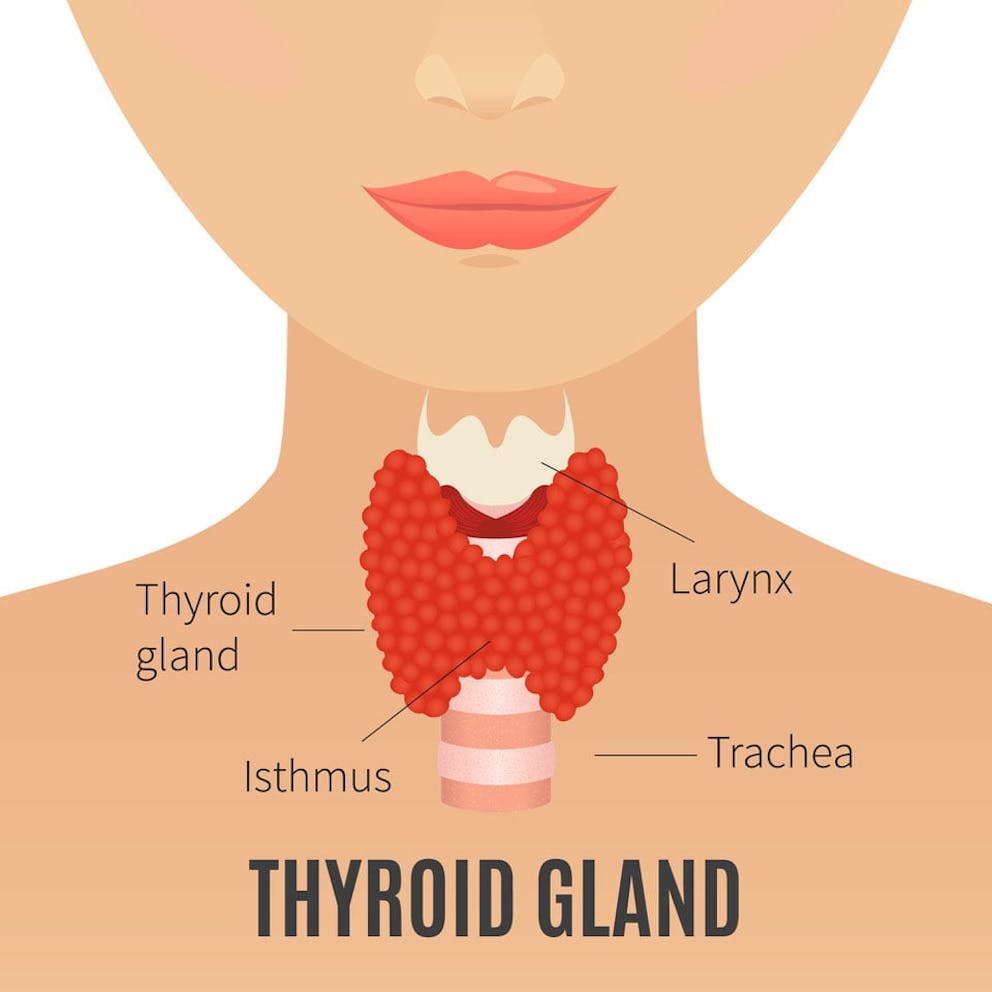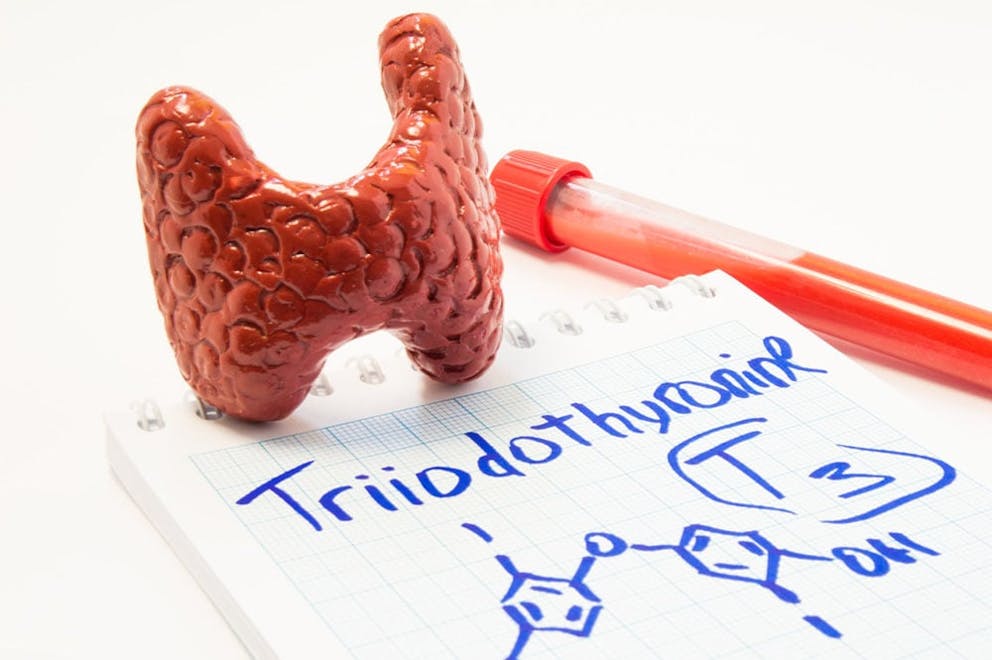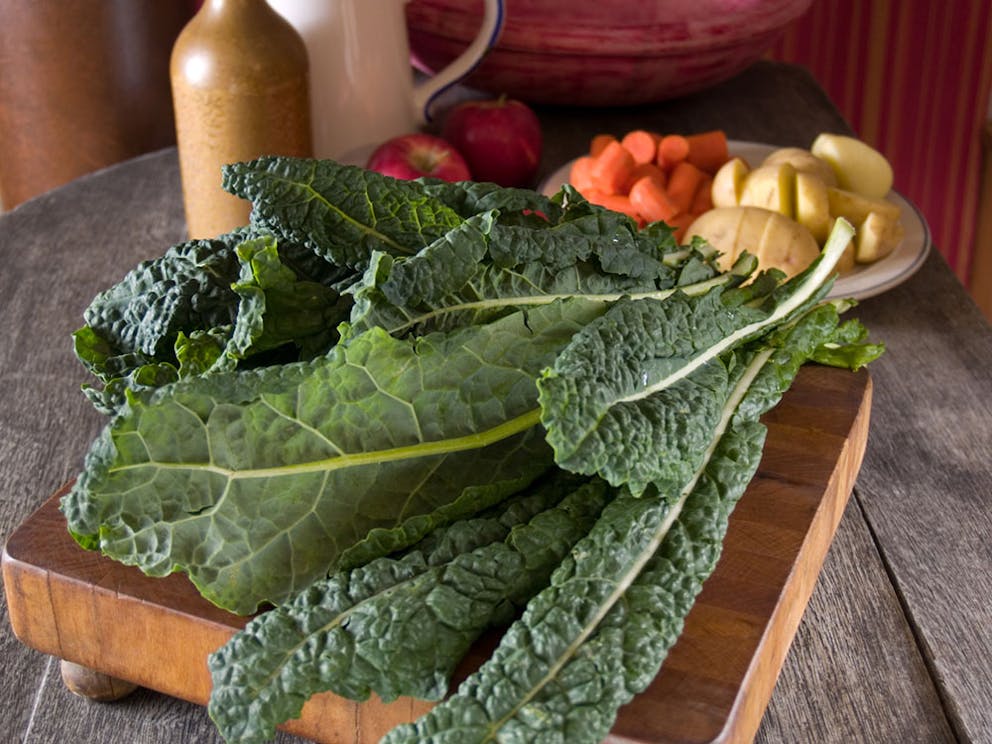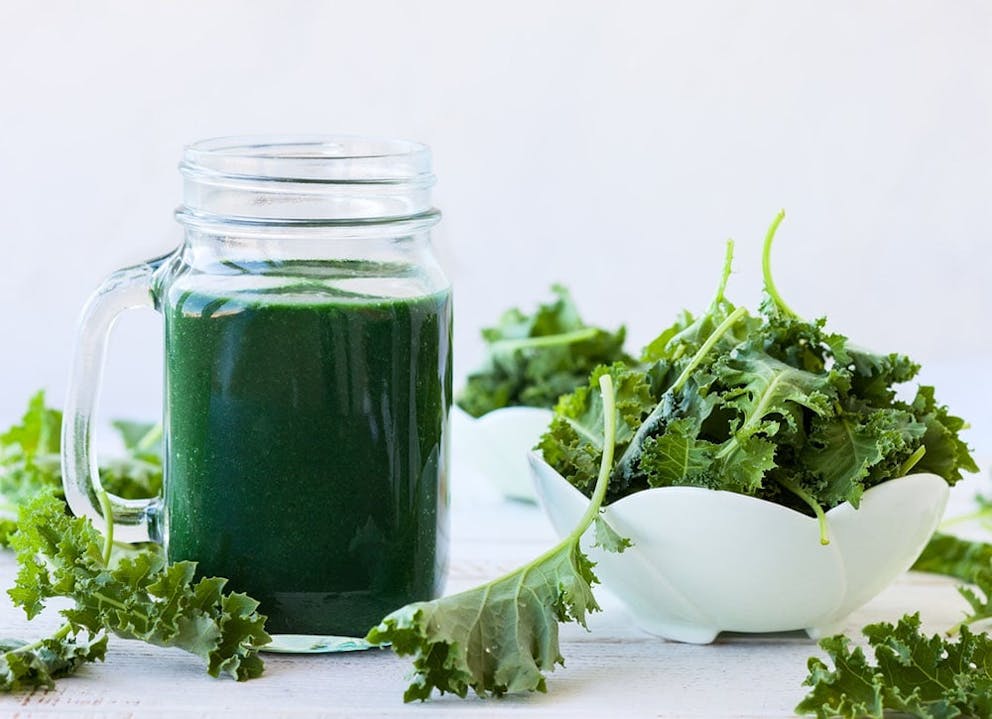Is Kale Poison to Your Thyroid
There are a lot of rumors out there saying that if you consume kale, you will get a goiter and destroy your thyroid gland. These rumors have made a lot of people wary of eating cruciferous veggies. They've made them question if they really are superfoods or if they are poisons instead. So, is kale poison to your thyroid or not?
In this article, I will uncover the truth behind these claims. I will cover:
First, let's take a closer look at these rumors. What do leafy greens do to your thyroid?
How does kale affect thyroid health?
Kale is a cruciferous vegetable. This same family of vegetable includes things like Brussels sprouts, cabbage, and bokchoy.
Cruciferous vegetables contain compounds called glucosinolates. This is one of the many types of phytonutrients found in these foods. Glucosinolates can be converted into other end products, such as isothiocyanates.

It turns out that some of these compounds from cruciferous vegetables act as goitrogens in the body. Goitrogens are substances that interfere with the thyroid's ability to absorb iodine.
Iodine is used in all parts of the body, and it is especially important in the thyroid gland. It is used to make thyroid hormones. When you don't have enough iodine, you can get a goiter.
The concerns with foods that have goitrogens in them is that they might impair thyroid function. And that if you eat them, you might not be able to make enough thyroid hormones (hypothyroidism).
But is there any merit to those concerns? Do kale, broccoli, and Brussels sprouts really poison your thyroid function and cause problems like goiters and hypothyroidism?
The truth about kale and your thyroid
There are currently no studies out there that show that kale will damage your body or cause problem with thyroid hormones.
In fact, if you aren't iodine deficient and if you eat a normal amount of these veggies, there is nothing to cause concern.
The only data out there is from animal studies done in pigs. Here's what we know:
The data shows that high doses of concentrated cruciferous vegetables lead to problems with the thyroid in pigs.
When we translate this into what it might mean for humans, you'll see that this data isn't something to worry about.
The amount consumed by the pigs in the studies equates to a 154-pound person having to eat 17 pounds of kale per day. Even if you are a major kale fanatic, there is just no way that you are eating such large amounts of this leafy green.
As you can see, the link between kale and thyroid function is really not an issue.
Learn more about the link between iodine, the thyroid, and cruciferous vegetables in this video.
Normal kale intake is perfectly safe
As we've covered above, the kale-thyroid connection is really just a myth.
This veggie does have a tendency to inhibit iodine absorption, but only in excessive amounts. There could only potentially be a problem if you already have very low iodine levels and you eat nothing but kale or other leafy greens. And that is just not something that most people will ever have to worry about.
If you eat a normal amount – even if you drink green smoothies and make salads and sauté kale with your dinner regularly – you shouldn't be concerned about the health of your thyroid.
You would have to eat a LOT of kale every single day (more than most people could ever consume) to cause any sort of problems with your thyroid.
Besides, consuming too much of any one food isn't good for you anyway. So as long as you are mixing up your diet, feel free to keep loving kale and eating it up.
In fact, I highly encourage people to eat kale regularly. It has many incredible health benefits.
The health benefits of kale

While there are people out there saying that kale is poison to the body, the opposite is actually true.
Kale has powerful health-promoting qualities. And rather than being a poison, it actually helps rid the body of poisons. These health benefits include:
Anti-cancer activity. Kale is one of the best cancer-fighting foods you can eat. It has powerful anti-cancer and anti-tumor effects.
Detoxification of poisons. Cruciferous vegetables stimulate something called phase I/II detox in your liver. This is where they liver converts poisons into harmless chemicals to release into the body so that they don't cause any problems.
Source of great nutrients. This leafy green is loaded with vitamin C, vitamin K, vitamin A, and so much more.
Kale is not a poison. In fact, it is like an anti-poison, helping rid poisons from the body and keeping us healthy.
And this is important. Living on this planet, there are so many different poisons around you. There are chemicals in the foods we eat and in the environments we live in. We are constantly exposed to things like endocrine disruptors and glyphosate from GMO foods, for example.
So thank goodness we have the family of cruciferous vegetables to help counter that out.
I include kale on my list of top 9 superfoods on the planet and highly recommend it to anyone for supporting great health.
What to do if you are still feeling wary

As I've shown, kale and other cruciferous vegetables are no threat to your thyroid.
There is no data to support the concerns. And I have never personally seen anyone have thyroid issues due to kale over the two decades I've been recommended it. These veggies actually provide amazing benefits for your body and are a great addition to any healthy diet.
But if you are still concerned at all about your intake of cruciferous vegetables, then follow these simple tips to put your mind at ease:
Take sea kelp for iodine. Sea kelp is a great healthy source of iodine. This will ensure that you have plenty of iodine around so your body has no trouble at all making thyroid hormones. That can help ease your worries about any issues with hypothyroidism or thyroid problems.
Don't get too crazy with your intake. Normal amounts of kale are just fine. Just avoid eating nothing but kale all day every day for each and every meal. That is unhealthy for several reasons, including that you won't get enough nutrients from other foods. You need a lot of different foods with different nutrients in them to fulfill your body's nutritional needs. Vary up your diet and eat plenty of superfoods.
Cook some of your kale. Raw kale has more goitrogens in it, and cooking helps get rid of them. Mix it up with cooked and raw. This makes your daily menus more fun anyways, so try making sautés, omelets, salads, green smoothies, shakes, and more.
Don't stop eating it! Most importantly, be sure not to shy away from kale because of the negative rumors. It is so good for you, and it should really be a part of your healthy eating meal plan.
You need not be worried about kale. But to put your mind at ease, the simple steps listed above can ensure you are making the healthiest choices possible with your diet.
The bottom line
If you've heard the rumors that cruciferous veggies are bad for you, then you might have gotten scared off of leafy greens like kale, collard greens, bokchoy, or Brussels sprouts.
But whether you are a kale fanatic or are looking to start adding more cruciferous vegetables into your life, you don't have to worry.

Here's a review of what you need to know:
It is true that these vegetables have a tendency to block iodine absorption when eaten in excess, but in normal amounts they are absolutely safe.
It would take an unreasonable amount of kale each and every day to actually harm your thyroid. It just won't be an issue for the everyday person.
Kale and other cruciferous vegetables are not poisons, and they will not damage your thyroid.
I have been recommending kale to my clients for two decades. And I have not yet had one single person have a problem with their thyroid after eating kale.
Here are some ways to get more kale and other cruciferous vegetables into your diet:
Make a kale shake.
Dress up your kale salads with this delicious peanut dressing.
Experience with recipes using other cruciferous vegetables like this Salmon Cabbage Bowl or Broccoli Fritters.

Do you enjoy cruciferous veggies? What are your favorite ways to eat and prepare them? Share your thoughts in the comments section below.
Up Next:
Disclaimer: Our educational content is not meant or intended for medical advice or treatment.
Editor’s Note: This post has been updated for quality and relevancy.
Previous blog
Kill Candida with Keto and IFNext blog
6 Tricks to Speed Up Keto AdaptationTags

Popular
08/21/2024
45.1K views
05/22/2024
40.1K views
11/18/2024
233K views
03/18/2024
11/21/2022




